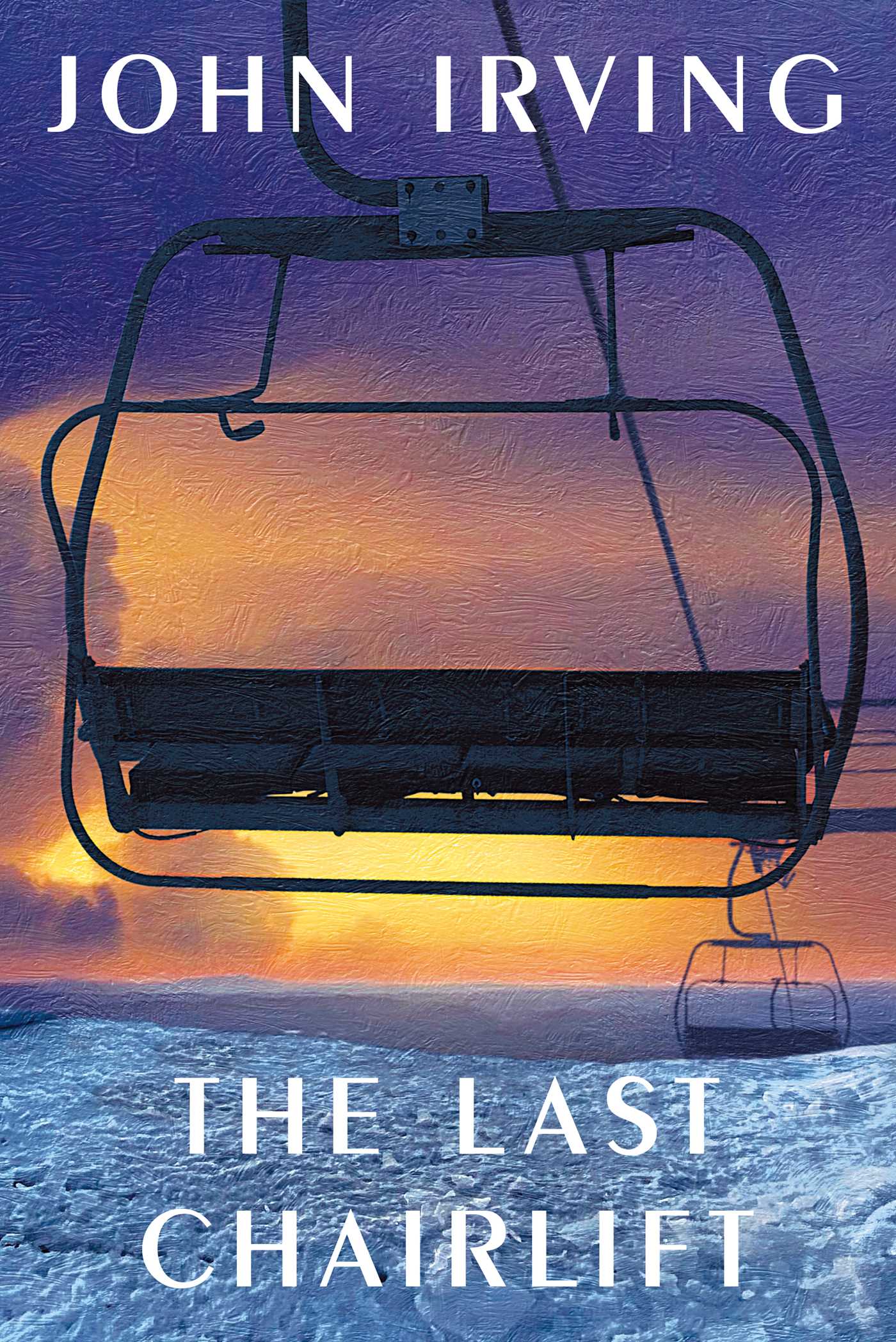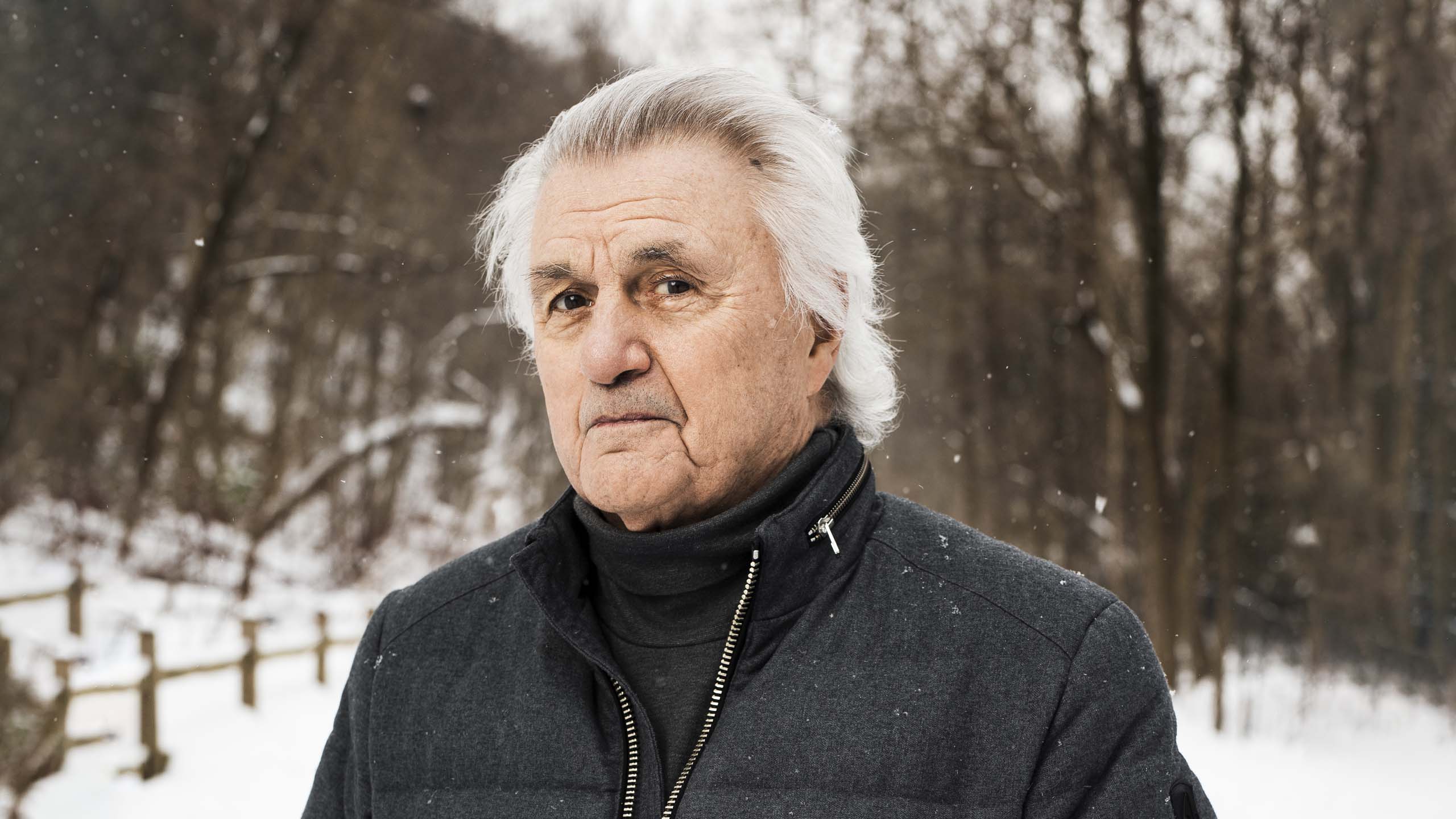John Irving’s runaway bestselling novel, The World According to Garp, published in 1978 and made into a 1982 film starring Robin Williams, is famous for many reasons (castration by car crash?), but particularly its ahead-of-its-time ideas about gender and sexuality.

Credit: Courtesy of Penguin Random House Canada
The protagonist’s unwed mother becomes a feminist icon who is assassinated, while Garp’s family’s closest friend (an extended family member, really) Roberta Muldoon, is a trans woman. While some of Garp can now seem dated—it was the 1970s—Roberta was one of the first trans characters in a bestselling U.S. novel and is depicted with empathy, admiration and zero judgment by the narrator. More broadly, in most of his novels, Irving’s fictional relationships push aside categories and definitions: intimacy without sex, sex without intimacy, parenthood without blood relations, partnership without marriage, chosen families that morph over time, with some friendships turning into a form of conjugality that seems like friendship. Characters chatter about who is sleeping with whom and who is having naked showers together—mostly in nonsexual ways.
In Irving’s fifteenth and latest novel, the whopping 900-some-page The Last Chairlift, there is again a straight male writer raised by a single mother, violence against a public advocate of minority rights and a core trans character, all swirling around in different configurations than Garp. But the new book, out this week, is even more deliberately engaged in how society can run roughshod over queer and trans people, and how shrugging off the labels and barriers placed on us by society can make us more ourselves, more at home in the world.
Just look at the main characters, aside from the straight male writer, Adam Brewster, the protagonist-narrator. For most of the book, Adam’s mother, Little Ray, is in a relationship with a woman, Molly, often at the same time Little Ray is in a marriage-like relationship with a trans female character, usually referred to as the Little Snowshoer, who transitions over the course of decades and becomes, in a way, the book’s hero. Also central is Adam’s lesbian cousin Nora and her female partner Em, who, together, become underground-famous for their edgy performance-art act Two Dykes, One Who Talks. (Yes, following on from the Ellen Jamesians in Garp, there is a woman who voluntarily doesn’t speak, though this one doesn’t cut out her tongue.) When gay friends and fellow performers start dying of AIDS, Nora becomes involved in ACT UP (AIDS Coalition to Unleash Power) politics, wearing a SILENCE=DEATH T-shirt, an object that becomes a talisman as the plot moves into the 21st century.
“Some ACT UP members questioned Nora’s participation in the group, especially at the demonstrations,” writes Irving. “‘We’re not a comedy club—we’re not in this for laughs,’ one of the ACT UP guys told Nora. The way Nora affected a crowd, including people who agreed with her, was a problem. For the most part, Em would keep her distance from the ACT UP demonstrations. What could a pantomimist do at a demonstration? Em was increasingly concerned about Nora’s effect on crowds, even at the Gallows.”
The characters in The Last Chairlift never argue more vehemently than over U.S. president Ronald Reagan’s silence and callousness about gay men and people of colour dying from AIDS when the crisis started in the early 1980s. “Reagan isn’t laissez-faire or do-nothing about communism, but he seems content to let an epidemic run its course through the gay community,” the Little Showshoer declares at one point.
“Kids in high school who are coming out as gay or lesbian or trans are denied access to knowing they’re not alone.”
And it’s not just these two novels where Irving gets all queer. His 2012 book, In One Person, which has a bisexual cis male protagonist fall in love with an older trans female character, won Irving a 2013 Lambda Literary Award in the Bisexual Fiction category—and earned him a special Bridge Builder Award as a straight ally. He was 70 when that novel was published. In an interview with Irving just before the release of the book, I ask him why, as a straight cis man (he doesn’t correct me when I call him this), he’s so engaged with these themes.
“The origins of my empathy for sexual differences are pretty long-standing. What’s sad to me to see, especially in the country where I was born, is the pushback to everything progressive,” says Irving. He has lived primarily in Toronto since 2014 and became a Canadian citizen in 2019 (the same year The Last Chairlift’s narrator, Adam, becomes a Canadian citizen).
“Look at the countless Republican state legislations lately that have been of an anti-LGBTQ2S+-community nature, the banning of books on the LGBTQ2S+ subject. So kids in high school who are coming out as gay or lesbian or trans are denied access to knowing they’re not alone. They are essentially made to feel more isolated and alone, especially at that age when they already might feel alone. That’s willfully cruel. At the time I was finishing The World According to Garp, I was actually naive enough to think that all this sexual hatred, it was going to be over before that book was even published, that the book would be dated. I don’t think I’m a prescient writer, but maybe it’s not hard to look at oppression when one can count on the backwardness of the right.”
Irving’s own mother was a nurse’s aide who often had to counsel young women who, before the 1973 Roe v. Wade ruling in the U.S., were prevented from obtaining safe, legal abortions. She once told him that if men in power can treat women badly, think of how badly they will treat other sexual minorities. That’s an idea Irving has carried throughout his career: it’s actually spoken by a character in The Last Chairlift. Irving says he had younger siblings, a brother and a sister, who were both gay, which helped shaped his worldviews. Even when he writes about men being killed and traumatized in the Vietnam War, which he does in The Last Chairlift and several other novels, he often thinks of the gay soldiers in particular. “Like a lot of straight men, I only learned that some of my longtime friends were gay when I learned they were dying. Some I had known were gay, of course, but losing people close to you under these circumstances was shocking,” Irving says.
“He’s clearly the dumbest member of his family, the last who knows anything. In his family, he’s the queer one, in the sense of the odd duck.”
Like Irving, who is 80, Adam Brewster is a writer. Irving also imbues Adam with some of his own feelings of being an “out of it” straight guy, a naive person surrounded by those who are more together than he is—self-awareness and self-actualization, it seems, lurks just beyond masculinity. “He’s clearly the dumbest member of his family, the last who knows anything. In his family, he’s the queer one, in the sense of the odd duck. Everyone else in his extended family, who love him and take care of him, are queer, but he’s always more than one step behind them,” says Irving. His straight protagonists, smart or not, always appreciate the support they get from queers and are never envious or angry about it.
Although young Adam frets about the safety of the Little Snowshoer when she starts to wear women’s clothing out in public in the 1950s and ’60s, the support and advice in their relationship mostly run the other way—the trans character knows what she’s doing. Through her transition, the novel plays with evolving pronouns and names and nicknames for the Little Snowshoer as Irving explores the character’s short-term identity as a gay man, borrowing clothes, hormones, and facing homophobic and transphobic threats. Irving’s youngest child, his third, is Eva Everett Irving, a trans woman and a writer herself, who read the first draft of the book. (Everett Irving is also an actor and director—she played Mariel in the CBC series Sort Of.)
“I wrote about my first transgender woman character in The World According to Garp before my trans daughter was even born, before she came out as a gay man and then transitioned to female,” says Irving. “I wrote this novel with that knowledge, of having a trans daughter, and thinking very consciously of how much I wanted the Snowshoer to be the best trans woman hero I could make for my daughter. So these connections are personal. It’s wonderful that she’s a writer because we’ve been sharing each other’s first drafts for a long time now.”
Irving swears the next book he’ll publish (he’s got at least three in mind) will be shorter than The Last Chairlift, but the man likes a good digression, so there are no guarantees. “For this one, I guess I had confidence in the ending—and I always start with the ending. If you create characters that the reader will like, you just have to have confidence that the emotional payoff is going to be worth the trip because no reader is going to stay with you for 900 pages if they’re not,” says Irving. “I do admit to being characteristically unfashionable. I look at the length of literary fiction being published today and people are publishing novels that look like novellas to me. I’ve said this is my last long novel, but no one believes me, not even my wife.”


 Why you can trust Xtra
Why you can trust Xtra


